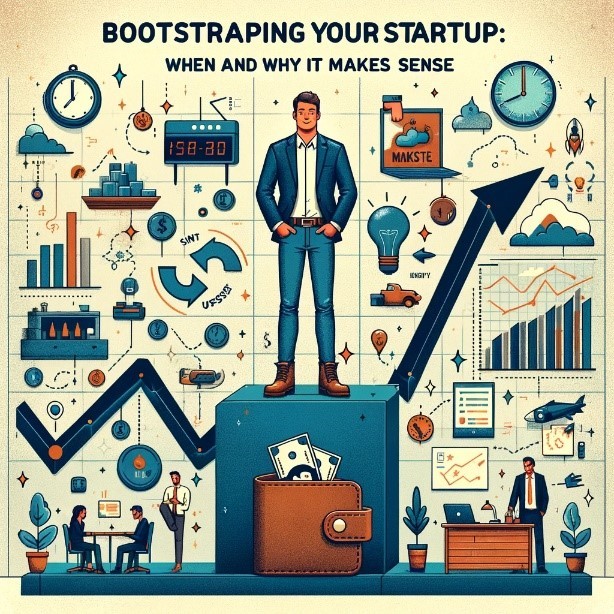Startup planning can be one of the most exciting yet challenging journeys you’ll embark on. The planning stage, often referred to as the “pre-launch” phase, is where you lay the groundwork for success. While it might be tempting to rush through this process to get your idea into the market, thorough preparation is essential for long-term sustainability.
In this blog, we’ll break down key elements to focus on during the planning stage, including market research, funding, legal considerations, and more, with a particular emphasis on legal aspects that are crucial to any Australian startup.
Define Your Business Idea and Goals
Before anything else in the startup planning stage, your business idea needs to be clearly defined. What are you offering? How does it solve a problem in the market? And, importantly, how is it different from what’s already out there?
Once you’ve clarified your idea, set both short-term and long-term goals. This could include targets for product development, revenue, market penetration, or customer acquisition. Your goals should be SMART: Specific, Measurable, Achievable, Relevant, and Time-bound.
While the business idea forms the core of your startup, defining your goals provides a roadmap for achieving them, ensuring you stay focused and on track.
Market Research: Know Your Audience
Understanding your target market is critical. Conduct thorough market research to determine who your ideal customers are, their preferences, and how they make purchasing decisions. In the Australian market, consider local economic factors, cultural influences, and industry-specific trends.
Key Questions to Address in Market Research
Market research should answer key questions such as:
- Who are your competitors?
- What are the gaps in the market?
- What is the demand for your product or service?
- What are the challenges or barriers to entry?
Investing time in understanding the market dynamics will help you craft a more targeted approach when launching your startup.
Develop a Business Plan
A solid business plan is essential during the planning stage. It outlines your business structure, target market, marketing strategies, financial forecasts, and more. Investors, banks, and other stakeholders will want to see a well-thought-out plan before they invest in or collaborate with your business.
Key Components of Your Business Plan
- Executive Summary: A snapshot of your business idea and goals.
- Market Analysis: Insights from your research, covering your target market and competition.
- Organisational Structure: Roles and responsibilities within your team.
- Marketing & Sales Strategy: How you plan to attract and retain customers.
- Financial Plan: Revenue projections, cash flow, and funding needs.
Legal Considerations: Set Yourself Up for Success
Addressing legal aspects early can save you from headaches down the road. Whether you’re setting up a tech startup, retail business, or service-based company, getting the legal foundation right is critical.
Choosing a Business Structure
In Australia, the four main types of business structures are:
- Sole Trader
- Partnership
- Company
- Trust
Speak to a legal advisor to determine the best fit for your business model.
Registering Your Business
You’ll need to register for an Australian Business Number (ABN) and potentially for GST if your revenue exceeds $75,000 annually. You may also need to register your business name with ASIC.
Trademarks and Intellectual Property (IP)
Protecting your brand is crucial. A trademark will safeguard your business name, logo, or slogan from being used by someone else. Consider whether your business has patents or trade secrets that also need protection.
Contracts and Agreements
Having well-drafted contracts in place is essential. Some key agreements include:
- Founders Agreement
- Employment Contracts
- Supplier and Vendor Agreements
- Non-Disclosure Agreements (NDAs)
Regulatory Compliance
Understand the regulatory framework relevant to your industry. Common regulatory bodies in Australia include ASIC, ACCC, and APRA.
Funding and Financial Planning
Securing funding is one of the biggest hurdles for startups. Whether bootstrapping or seeking investment, you’ll need a clear financial plan.
Options for Raising Capital
- Bootstrapping
- Venture Capital (VC)
- Angel Investors
- Government Grants
Having a detailed financial forecast is crucial for securing investment.
Marketing Strategy
Don’t overlook the importance of a solid marketing strategy while in the startup planning stage. Consider branding, digital marketing, and PR to create brand awareness and attract customers.
Build a Team
If your startup is more than a solo effort, building the right team is crucial. Identify the skills you need and ensure employment agreements are in place to comply with Australian laws.
Conclusion
At Allied Legal, we’re here to help you navigate the tricky legal stuff, so you can focus on turning your big ideas into reality. Whether it’s structuring your business, protecting your intellectual property, or preparing airtight contracts, we’ve got your back. So, why not let us handle the legals while you get ready to launch? 😉.







